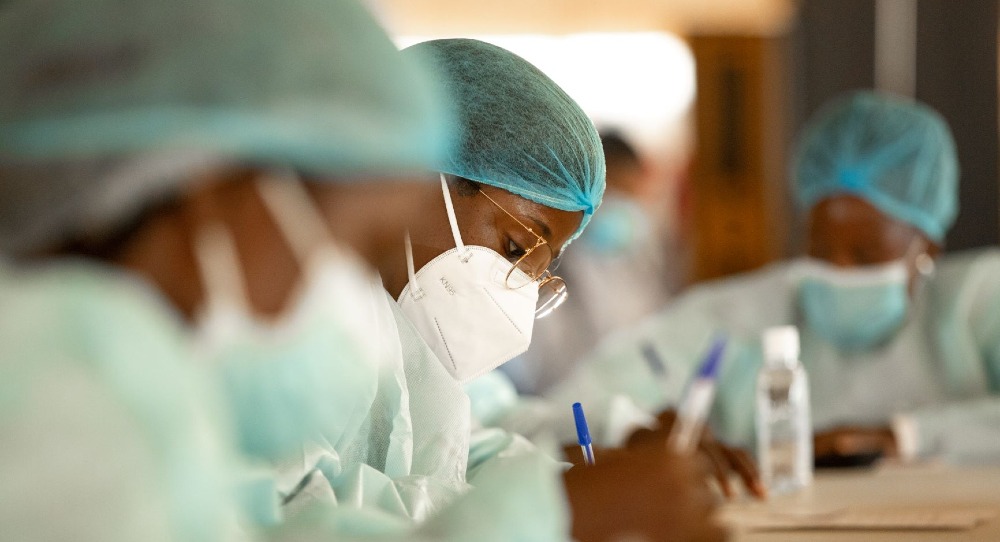Brazzaville– Africa is experiencing its longest-running decline in COVID-19 infections since the onset of the pandemic, the World Health Organization said on Thursday, April 14, 2022.
Recorded weekly cases have fallen for the past 16 weeks, while deaths have dropped for the last eight.
Infections—largely due to the Omicron-driven fourth pandemic wave—have tanked from a peak of over 308 000 cases weekly at the start of the year to less than 20 000 in the week ending on 10 April 2022. Over the past week, around 18 000 cases and 239 deaths were recorded, a decline of 29% and 37% respectively compared with the week before. This low level of infection has not been seen since April 2020 in the early stages of the pandemic in Africa.
Africa’s previous longest decline in COVID-19 infections was between 1 August and 10 October 2021. Currently, no country is witnessing COVID-19 resurgence. World Health Organization (WHO) considers that a country is in resurgence when it records a 20% increase in cases in at least two consecutive weeks and that the recorded week-on-week rise is 30% or higher than the highest weekly infection peak previously reached.
“Despite the decreasing infections, it is crucial that countries remain vigilant and maintain surveillance measures, including genomic surveillance to swiftly detect circulating COVID-19 variants, enhance testing and scale up vaccination,” said Dr.Matshidiso Moeti, WHO Regional Director for Africa. “With the virus still circulating, the risk of new and potentially more deadly variants emerging remains, and the pandemic control measures are pivotal to effective response to a surge in infections.”
With the cold season approaching in the southern hemisphere in June through August, there is a high risk of another wave of new infections. Africa’s previous pandemic waves have often coincided with lower temperatures when people mostly stay indoors and often in poorly ventilated spaces.
In addition, new variants can impact the evolution of the pandemic. In Botswana and South Africa, researchers are conducting further analysis into new sub-lineages of the Omicron variant recently detected there to determine whether they are more infectious or virulent. The BA.4 and BA.5 identified in the two southern African countries have also been confirmed in Belgium, Denmark, Germany and the United Kingdom.
Currently there is no significant epidemiological difference observed between the new sub-lineages and known sub-lineages of the Omicron variant, which include BA.1, BA.2 and BA.3 sub-lineages.
With the receding infections, several African countries are easing key COVID-19 measures such as surveillance and quarantine as well as public health measures including mask-wearing and band on mass gatherings.
Based on current WHO technical guidelines, the Organization urges countries to weigh the risks and benefits as they relax COVID-19 measures, taking into account the capacity of their health systems, population immunity to COVID-19 and national socioeconomic priorities. Systems should be in place to quickly reinstate the measures if the epidemiological situation worsens.

